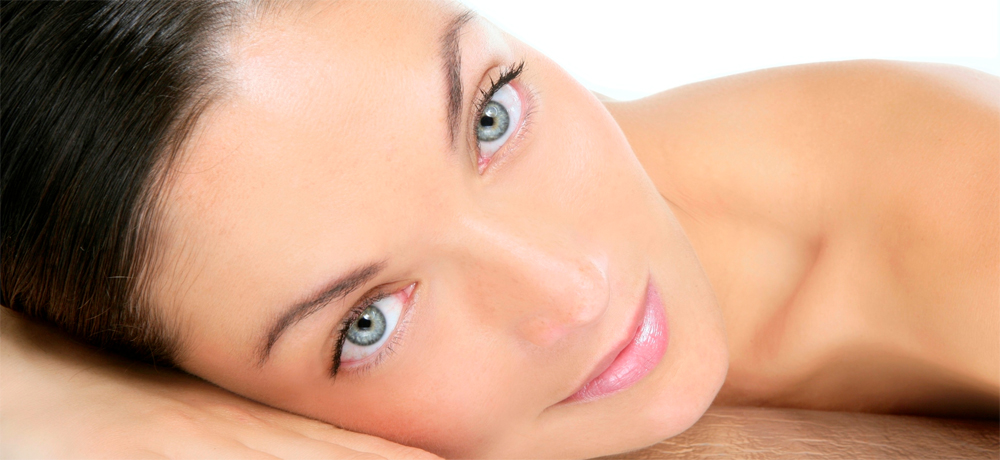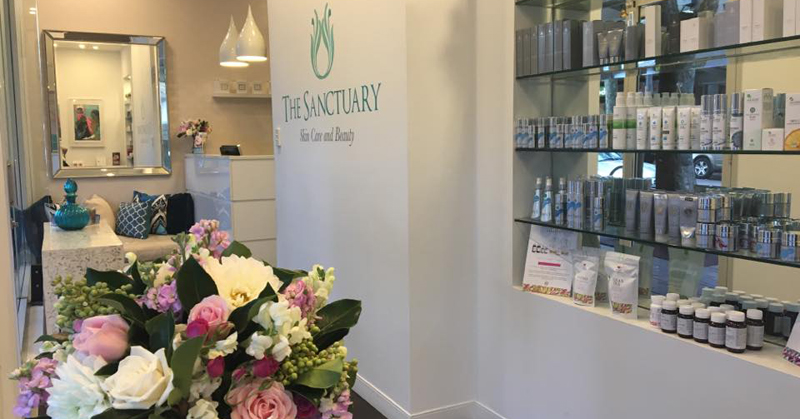The Sanctuary Skin Care and Beauty is an advanced skin clinic and beauty salon located in Neutral Bay. The salon is owned by Lane Cove local, Natasha Lee. Natasha is passionate about skin care, and has shared a blog with is about the dreaded acne (it’s not just for teenagers…).
What causes acne and how can I get rid of it?
Acne. This is a common problem for many of our clients. In fact, in a university survey of 1000 men and women, 73% reported having suffered from acne at some point in their lives. According to the survey results, acne affected both male and female participants equally during the teen years (68.5% of males and 66.8% of females reported having acne as teens).
Most people assume that once you’re past your teenage years, issues with unsightly breakouts simply disappear. Unfortunately, that’s not a reality for many. The same survey revealed that:
- During their 20s, 50.9 percent of women and 42.5 percent of men reported experiencing acne.
- During their 30s, 35.2 percent of women and 20.1 percent of men reported experiencing acne.
- During their 40s, 26.3 percent of women and 12 percent of men reported experiencing acne.
There are several possible causes of acne:
- Overactive androgen hormones are a common cause of acne. Androgen hormones become more active under the following circumstances:
- Puberty – Androgen hormones increase for boys and girls during teenage years, causing sebaceous (oil) glands to enlarge and make more sebum (oil).
- Stress – Causes in increase in cortisol and androgen hormones which stimulate sebaceous glands.
- Stopping birth control pills – Oral contraceptives contain estrogen and progesterone, hormones which control androgen activity. Acne flares up when the pill is stopped because androgen activity goes up again.
- Pregnancy – The androgenic hormone progesterone increases with pregnancy, causing sebaceous (oil) glands to be stimulated.
- Menopause – Strong fluctuations in hormones cause sebaceous (oil) gland activity to increase, causing pimples. Androgens (male hormones) have a stronger effect with the dropping of the estrogen (female hormones) levels during menopause.
- Certain medical conditions, such as polycystic ovarian syndrome in women, may trigger adult acne. (See your doctor to rule this out as a cause of acne).
- Prescription Drugs – for example, lithium (for treating bipolar disorder), and corticosteroids are known to cause acne.
- Certain skin care products and make up can clog the pores.
- Over-cleansing and over exfoliating (this will be discussed later)
- Poor skin care regime – not cleansing your skin properly and lack of exfoliation will cause more breakouts.
- Diet – A diet high in sugar and processed foods will do no favours for the skin and may cause further inflammation. Some sufferers of acne will benefit from adjustments to their diet.
- Genetic predisposition

How can I clear and improve my skin?
- Maintain a healthy skin barrier
- When experiencing acne, it is tempting to attack your problem using harsh soaps, cleansers and exfoliants. However, it is important not over cleanse/over exfoliate your skin. You may only make your skin more sensitive, compromising your skin’s healthy barrier. In fact, the surface of your skin is slightly acidic – it has an ‘acid mantle’ – and if you’re using harsh soaps/cleansers on your skin you’ll be stripping the very acids that help to ward off bacteria. A compromised skin barrier is often dehydrated – and when your skin is dehydrated, your skin will produce more oil. It is important to note that if your skin’s barrier is compromised, you’ll need to rebuild your skin’s barrier before going forward with other acne products/treatments.
- Minimise exposure to bacteria
- Avoid touching your skin, wash your pillowcase regularly, regularly clean your office/mobile phone. Change your towels regularly. Always use a new towel at the gym. If using makeup, make sure you wash your make up brushes regularly as they are often a breeding ground for bacteria.
- Don’t pick! You’ll risk exposing your skin to more bacteria, not to mention scarring.
- Using the right products, correctly
- Adult acne needs to be treated differently to teen acne. Generally, teenage skin is relatively thick and is more resilient. However, as we age our skin thins out and becomes more sensitive to certain products. Harsh cleansers, toners and scrubs commonly found in supermarkets strip oil from the skin and may only irritate the condition.
- Good alternatives to granular scrubs are AHA/BHA products which not only exfoliate your skin but also hydrate and calm your skin. We recommend products containing Salicylic Acid and/or Lactic Acid. Other skincare ingredients which will assist are Vitamin A/Retinol, tea tree, niacinamide (topical vitamin B).
- Mineral make up is a good alternative to traditional foundations and will not clog your skin. Look for a mineral makeup that contains zinc oxide, which helps to calm inflammation and absorb excess oil. We recommend medical-grade Colorescience brand of mineral makeup.
- Diet
- Adjustments in your diet may be required – sugar, dairy and wheat are known to cause skin inflammation in some people
- Reducing saturated and trans-fat content in your diet can help slow the increase of sebum in the skin.
- Eating foods rich in antioxidant vitamins keeps skin and body healthy.
- Foods that help to promote alkalinity in the body get big ticks (do a google search for an acid/alkaline food chart). Try to reduce foods that promote acidity in the body as these can promote acne and inflammation.
- Recommended supplements which may assist include: zinc (strong anti-inflammatory and oil balancing action), chlorophyll (alkalizing), probiotics (promote good gut flora) and Essential Fatty Acids like fish oil/flax seed oil (they will regulate hormones, reduce stress levels, assist with hydration, anti-inflammatory). Please check with your doctor/naturopath whether these are suitable for you before starting on any new supplements.
- Drinking at least 8 glasses of water daily will keep skin hydrated and help dilute the skin’s secretions, preventing pore congestion.
- You may wish to consider consulting with a naturopathic nutritionist to complement our advice, or your GP/dermatologist if your acne is severe.
- Lifestyle
- Get a good night’s sleep, meditate / practice yoga – sleep deprivation and stress result in elevated cortisol levels, which can cause breakouts
- Exercise – promotes healthy blood circulation, lymph flow, and detoxification
- Treatments
- At The Sanctuary, one of our areas of expertise is treating and correcting acne. We take a wholistic approach looking not only at your homecare and clinic treatments, but also how your diet and lifestyle may be impacting your skin.
- We offer a vast array of treatments which will assist in clearing skin. We also treat the aftermath of breakouts including blemishes (AKA post inflammatory pigmentation) and acne scarring.
- Just a few of the treatments we offer for acne include: Purifying facials which include steam/extractions, customised peels, skin needling for acne/acne scarring and LED Blue light therapy. We often combine these treatments as part of a skincare programme, with excellent results.
- If you’re serious about clearing your skin and would like one of our skincare experts to help, we recommend you book in for a skin consultation and treatment with us.
This is a sponsored post.

The Sanctuary Skin Care and Beauty
Address: 4 Young Street, Neutral Bay NSW 2089
Phone: 02 9904 9842
Email: [email protected]
Website: www.sanctuaryskincare.com.au
Facebook: The Sanctuary Skin Care and Beauty
Instagram: @sanctuaryskincare
Do you have a local issue you would like help with? ITC is here to help just email us at [email protected]
- Sign up for the weekly In the Cove Newsletter
- Like us on Facebook
- Follow us on Instagram @inthecove
- Tweet us on Twitter @InTheCoveITC
- Pin us on Pinterest inthecoveITC
- Tell your friends about ITC (they will thank you!!). Remember to tell them that ITC is a website and they do not have to have access to any Social Media to enjoy ITC – we often speak to people who tell us they want to follow ITC but don’t have Facebook or Instagram account (you don’t need them)














